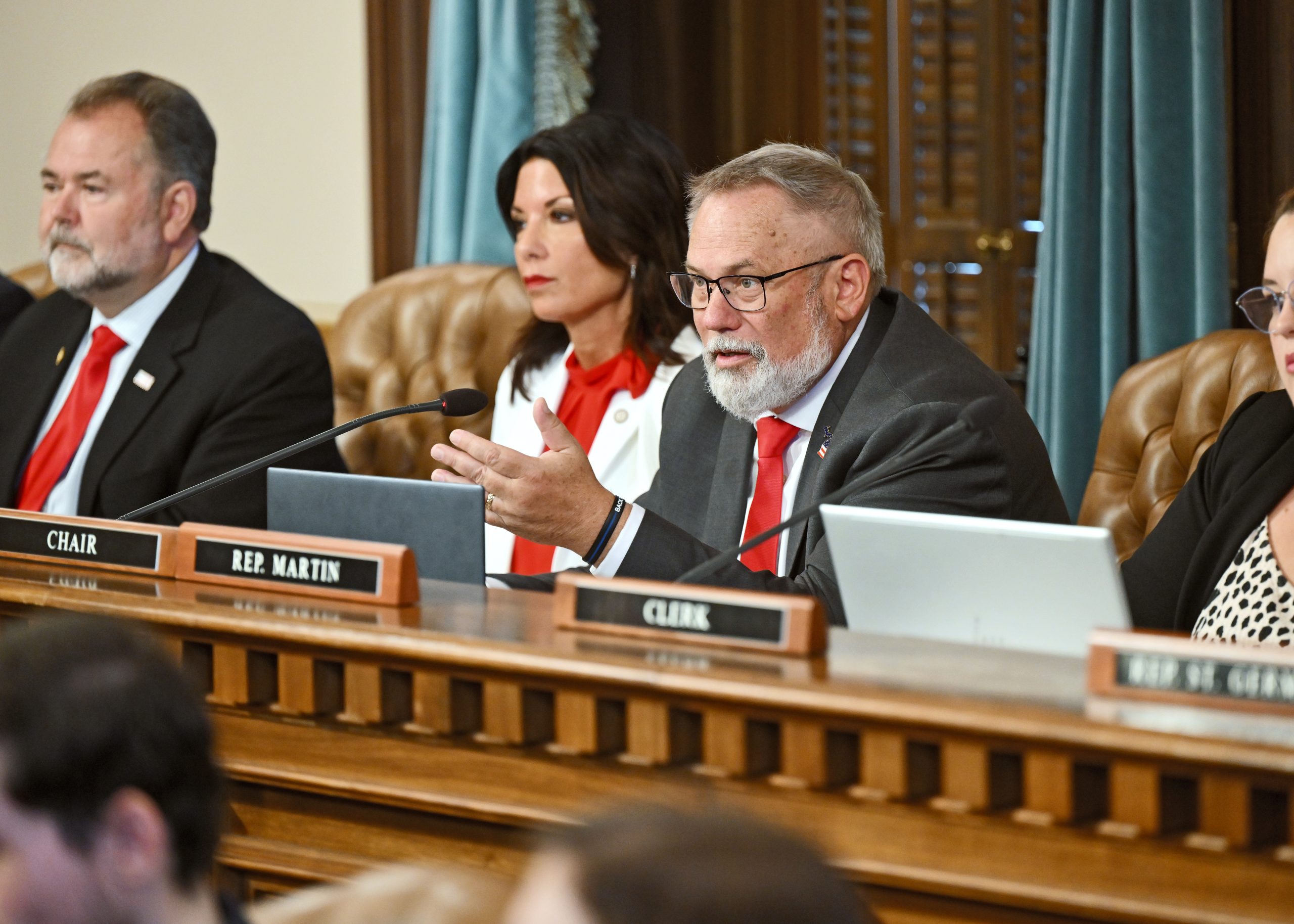


State Rep. David Martin, R-Davison, on Tuesday voted to support a responsible, balanced state budget plan for the 2025-26 fiscal year that reins in wasteful spending and makes historic investments in the priorities of Michigan families.
The omnibus budget approved by the House this week totals $56.6 billion and covers most state departments outside of education. This follows the House’s approval earlier this year of a $21.9 billion School Aid budget that invests at record levels in Michigan classrooms. Together, the two budgets total $78.5 billion — a 3.7% reduction from the current year’s budget.
The House’s plan fully funds roads, public safety, and key services without raising taxes — in sharp contrast to the Senate’s $84.5 billion proposal, which even Senate fiscal experts say does not balance. The Senate’s plan includes a $3 billion unfunded “placeholder” for roads, undercounts Medicaid caseloads by $1 billion, and ignores about $700 million in revenue loss Michigan expects to see as a result of tax cuts in the federal One Big Beautiful Bill Act.
“Michigan’s budget has ballooned in recent years, but the problems people care about most never seem to get solved,” Martin said. “This plan changes that. We trimmed the waste and focused on results, so families see improvements in their neighborhoods, not just more bureaucrats on the payroll in Lansing.”
Examples of wasteful spending eliminated in the House budget include:
- Phantom employees. For the past several years, state departments have been receiving money each year for new positions they never fill. That money sits unused and becomes a slush fund for departmental directors. By cutting 4,300 phantom state jobs, the House budget freed up $560 million.
- Unspent work project money. Across state government, more than $6 billion in unused work project funds are sitting on the books. This is money the Legislature allocated years ago but departments squirreled away. Of that, $2.5 billion was unobligated, so the House budget redirects it to pay off debt from Gov. Whitmer’s road bonds.
- Failed programs. The SOAR corporate giveaway program has handed out billions with little return for Michigan families. The House budget eliminates funding for SOAR as well as the statewide EV charging program, which has not produced a single charger despite receiving $30 million in previous budgets.
By cutting this waste, Martin said the House’s budget was able to prioritize funding for programs that matter most to Michigan families, including:
- Providing $3.4 billion in new, ongoing funding to fix local roads without raising taxes. The House’s plan is expected to create 20,000 new jobs and give communities the resources they need to finally fix potholes and repair crumbling infrastructure.
- Establishing the House’s Public Safety Trust Fund and investing $115 million to help communities fight violent crime and keep families safe.
- Delivering tax relief for working families and seniors by implementing tax cuts from the One Big Beautiful Bill at the state level, eliminating state taxes on tips, overtime pay, and Social Security income.
- Offering a new research and development tax credit to encourage investment, innovation, and job creation in Michigan.
The House budget also makes important reforms in health and human services to ensure support is available for those who truly need it.
Michigan’s Medicaid program has been paying for expensive name-brand prescriptions even when less costly generics are available, a perk that has been costing taxpayers an additional $125 million to $175 million a year, according to the House Fiscal Agency. The House budget reins in excesses like these and ensures taxpayer dollars are used responsibly. It also cracks down on food stamp fraud by requiring the department to use chip-enabled SNAP EBT cards and take other steps to lower Michigan’s error rate, which is among the worst in the nation.
“We made smart reforms to make sure taxpayer money is spent wisely, but we also made sure our most vulnerable neighbors are protected,” Martin said. “This budget guarantees essential services will remain available for the people who truly need them.”
Martin also highlighted the House’s efforts to bring more transparency to state government.
The House budget brings back performance dashboards so the public can see how state departments are doing, requires public reports on severance pay awarded to state employees, and establishes new reporting requirements on work project spending.
“People are tired of the backroom deals and bloated budgets of the past,” Martin said. “We’ve brought accountability back to the process, and we’ve shown that government can live within its means, just like families in Genesee and Oakland counties and others across Michigan do every day.”
House Bill 4706 contains the House’s omnibus budget. The measure passed the House on Tuesday with bipartisan support. The chamber’s education budget, House Bill 4577, passed the House in June. Negotiations between the House, Senate and governor over the final state budget for the fiscal year that begins Oct. 1 are ongoing.

© 2009 - 2026 Michigan House Republicans. All Rights Reserved.
This site is protected by reCAPTCHA and the Google Privacy Policy and Terms of Service apply.